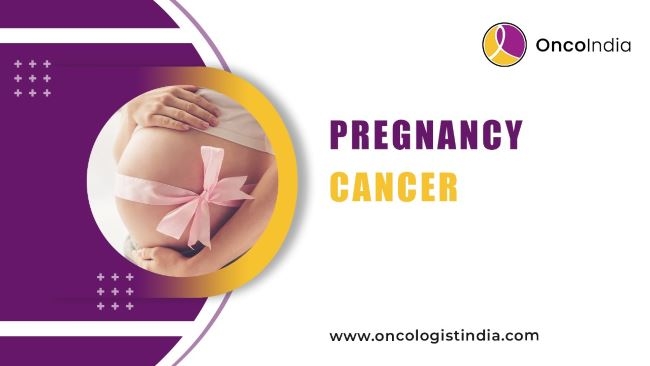Pregnancy and childbirth are the happiest and most exciting times in a woman's life. Cancer, on the other hand, is the most feared disease in the world. What happens if both circumstances occur at once in a person's life? Vimala (real name changed) experienced this emotional rollercoaster while carrying her first child.

Vimala's condition is known as pregnancy-associated breast cancer (PABC), according to the medical community. Breast cancer that is detected either during pregnancy or within the first year after delivery is known as PABC. Dr. Shiva Kumar Uppala, the senior oncologist at OncoIndia has seen the physical and emotional suffering of numerous patients who were forced to make difficult, life-altering choices as a result of PABC.
According to Dr. Shiva Kumar, removing the tumor mass surgically can be done safely even if the woman is in her eighth or ninth month of pregnancy. However, the chemotherapy regimen cannot begin while the baby is still in the womb.
Post-delivery PABC treatment presents its own set of challenges. Breastfeeding will have to be temporarily discontinued during chemotherapy sessions because the drugs used in the treatment can enter the breast milk and affect the newborn baby. “Though it may be difficult for the new mother, it is critical that we prioritize PABC treatment over breastfeeding at this time. However, breastfeeding does not need to be stopped during other treatment processes such as surgery, radiation therapy, or hormonal therapy," assures Dr Shiva Kumar.
Vimala was diagnosed with PABC in the second month of her pregnancy. Initially, she was opposed to the idea of abortion. She agreed to an abortion after a few counseling sessions with psychiatrists recommended by Dr Shiva Kumar and detailed discussions with her family. "While giving up your unborn child is extremely painful, it is also important to value one's own life and health," says Dr. Shiva Kumar.
The burning question for almost every PABC patient is whether they will be able to have a child after treatment. According to Dr. Shiva Kumar, the chances of chemotherapy affecting a woman's egg count or fertility are extremely low. This is because chemotherapy drugs only act on actively diving cells, whereas in a woman, only one egg is activated each month while the others remain dormant. For women who are concerned that cancer treatment will affect their fertility, there are options such as ovarian tissue cryopreservation. During this procedure, ovarian tissues are frozen or preserved for future use. If infertility occurs as a result of cancer treatment, this frozen tissue can be used for In-Vitro Fertilization (IVF) techniques to achieve conception.
“I am grateful that my PABC was detected early on during my pregnancy. Though I went through hell during that period I am glad I had the support of my family and Dr. Shiva Kumar,” says Vimala. She is now PABC-free and is the proud mother of a 13-month-old son.
Blog Reviewed By: Dr. Shiva Kumar Uppala